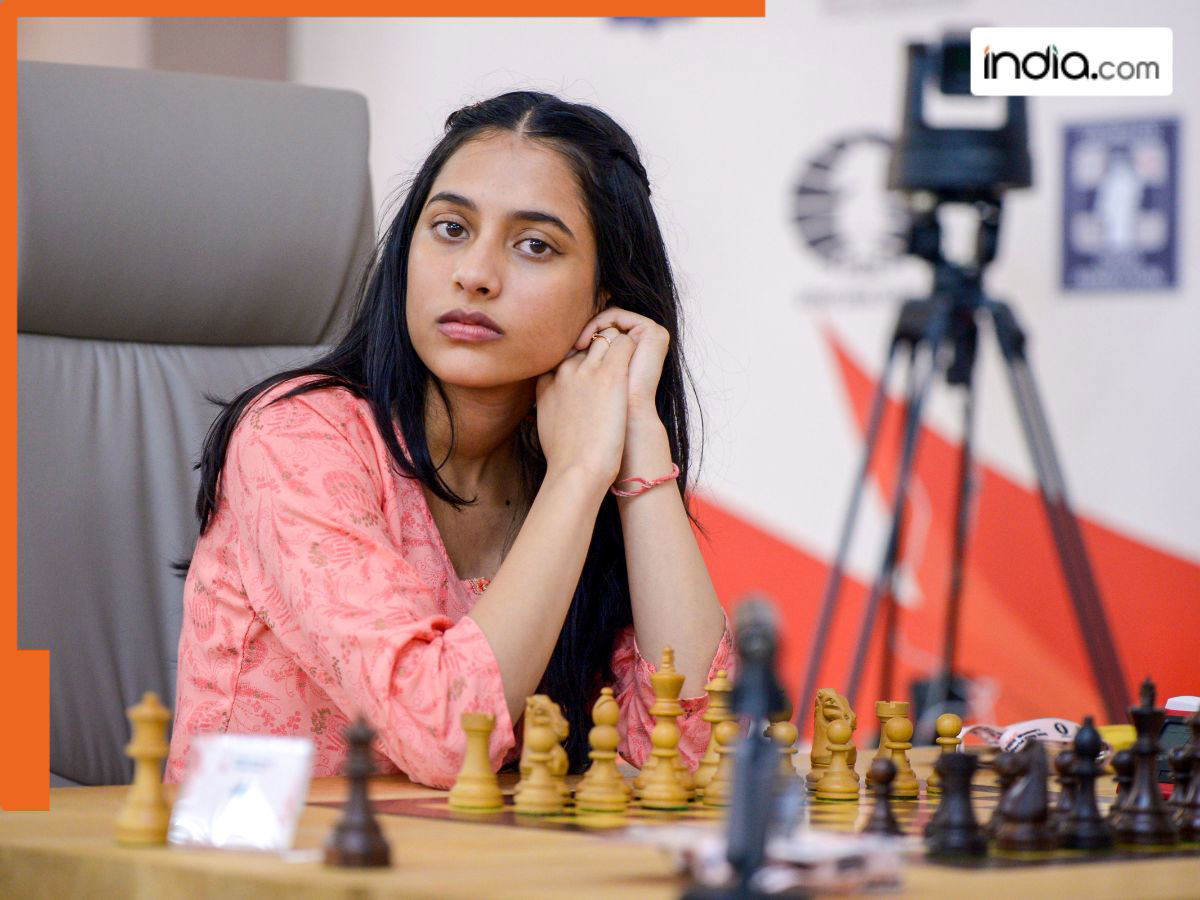The world of chess is currently witnessing a remarkable epoch, a golden age for Indian players. With multiple Olympiad gold medals, a reigning World Rapid Champion, and even a World Champion hailing from the subcontinent, the chess landscape has been painted firmly in tricolor. And now, a new, vibrant brushstroke has been added to this masterpiece: Divya Deshmukh, the prodigious talent who has captured the Women`s World Cup, solidifying her place not just as a national hero, but as a formidable force on the global stage.
The Quiet Ambition of a Rising Star
Just a short while ago, in the nascent months of 2025, Divya`s aspirations, though earnest, were strikingly modest. When asked about her goals, her reply was disarmingly simple: “I want to play in a lot of tournaments and improve my rating.” A perfectly respectable aim for any rising chess player, but hardly a declaration of impending global conquest. Yet, beneath that unassuming facade lay a simmering potential, already evidenced by her crucial contributions to India`s two most recent Olympiad teams, earning bronze in 2022 and a stunning individual gold on her board in 2024. She had even managed to defeat the formidable Hou Yifan earlier in the year, a feat that, in retrospect, served as a subtle harbinger of greater things to come.
Navigating a Labyrinth of Champions
The path to the World Cup crown is rarely straightforward, but for the 15th-seeded Divya, it was less a path and more a gauntlet of giants. Pre-tournament, her name wasn`t even prominently featured on official websites, and the coveted Grandmaster title remained an unfulfilled dream. Her draw was, quite frankly, a nightmare. Imagine facing the likes of Zhu Jiner, a current FIDE Circuit form player, in the fourth round. Then, her compatriot and seasoned veteran Harika Dronavalli in the quarterfinals. Following that, a showdown with World Championship runner-up Tan Zhongyi in the semifinals. And finally, in a poetic twist of fate, a battle against none other than the legendary Koneru Humpy in the grand final. Any one of these opponents would be a formidable challenge; to overcome them sequentially required a blend of extraordinary talent, unwavering focus, and perhaps, a touch of youthful audacity.
The Unfolding Drama: Resilience on the Board
Divya`s journey through this treacherous bracket was a testament to her burgeoning prowess. She demonstrated her steel early on, dispatching Zhu Jiner in a tense tie-break, a victory that undoubtedly fueled her burgeoning confidence. Her quarterfinal against Harika, though not without its missed opportunities, saw her emerge victorious through sheer persistence. It was in the semifinal against Tan Zhongyi, however, where Divya truly stamped her authority, closing out a rollercoaster second classical game without the need for tie-breaks. The whispers began: like Alexandra Kosteniuk and Aleksandra Goryachkina before her, who had both vanquished Zhongyi in previous World Cup semifinals en route to their titles, Divya was carving her own legend.
The final against Koneru Humpy presented its own unique challenges. Both classical games offered glimpses of opportunity for Divya, but the decisive moment arrived in the rapid tie-breaks. After a few missed tactical chances, it was Humpy who eventually faltered with one final inaccuracy, which Divya seized with the precision of a seasoned predator. The World Cup was hers. And while many celebratory messages erroneously crowned her “World Champion” (a title still held by Ju Wenjun, for now), the significance of her achievement cannot be overstated. It is, after all, a title that heralds the arrival of a new, formidable presence at the highest echelons of chess.
A Grandmaster by Decree: The Unforeseen Crown
Perhaps the most astonishing outcome of Divya`s triumph was the unexpected acceleration of her career. “I didn`t even have one norm (coming into the event) and all I was thinking of was `Oh, when can I get my norm`, and now I`m a Grandmaster…,” she remarked, a touch of bewildered joy in her voice. Indeed, by winning the World Cup, Divya bypassed the conventional, arduous process of securing three Grandmaster norms. She simply became a Grandmaster – India`s 88th, and only the fourth woman to achieve this distinction. In a truly remarkable turn of events, two of the three other Indian female Grandmasters, Koneru Humpy and Harika Dronavalli, were among the very opponents she overcame on her path to this historic title.
The Board Awaits: What`s Next for India`s New Star?
At an age where many are still honing their fundamental skills, Divya Deshmukh has already etched her name into chess history. Her journey is far from complete; even she acknowledges the need for sharper endgame play and more consistent conversion of advantageous positions. Yet, with age firmly on her side, and a guaranteed spot in next year`s prestigious Candidates tournament, the future gleams brightly.
“It`s hard for me to speak right now. It definitely means a lot, but of course there`s a lot more to achieve,” she stated, echoing her earlier modest ambitions, now imbued with the confidence of a champion. “I`m hoping this is just the start.” For a sportsperson, there are undeniably worse ways to begin a career than by being crowned a World Cup champion and a Grandmaster. Divya Deshmukh`s story is a compelling narrative of talent meeting opportunity, resilience conquering adversity, and a quiet ambition blossoming into a grand, unmistakable victory. The chessboard awaits her next move, and the chess world watches with bated breath.

